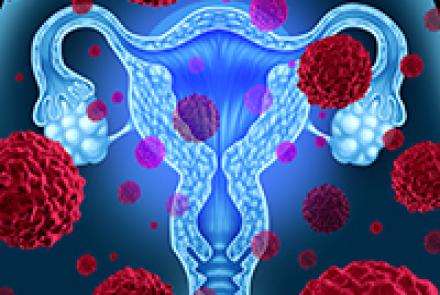The following symptoms may occur but the early stages of cervical cancer may be asymptomatic (not have any symptoms) as well:
Constant vaginal discharge which may be foul smelling, watery or bloody
Vaginal discharge may be pink or brownish in colour
Unusual vaginal bleeding in between menstruation, at menopausal stage and even after having intercourse
Pelvic pain during intercourse or otherwise
Menstruation period is heavier than the usual and lasts longer
Cervical cancer can spread to other…
Latest Stories
- The Multiple Sclerosis Society of India was established in 1985 at Mumbai. Mrs. Rehmat Fazelboy, a social worker and Mr.Tobaccowalla (Chairman, Voltas Ltd, Mumbai) are the founding members. Presently there are 9 chapters with 2 support groups. The Chennai Chapter was inaugurated on September 1997. Our patron doctor is Prof.Dr.G.Arjundas. Mrs.Ann Gonsalvez is the Chairperson of the Chennai Chapter. We have about 210 patients on our rolls in Chennai. Our Vision: Create awareness of…
- Many people with diabetes encounter difficulties with sex but are hesitant to address them. Some of you have asked us anonymously. Diabetologist Dr Rajiv Kovil from Mumbai offers some information and advice. Sexual problems (sexual dysfunction) are common among people with diabetes. Both men and women with diabetes experience sexual difficulties as a result of complications from the disease. How common is the problem? Although no official statistics are available for the extent…
- Obesity can be managed with lifestyle, dietary and behaviour modifications: Lifestyle changes Stay your ideal weight for height. Make it your lifestyle. Take the stairs. Stop eating when 80% full. Have regular sleep time and an exercise schedule and adhere to it. Walk when it is not possible to exercise. Eat to live and not live to eat. Dietary changes Choose healthy food options – To allow for weight loss, consume fewer calories and opt for healthy food choices. Consume salad before food…
- All of the measures mentioned under the management section apply to rules of prevention of obesity. Additionally: Maintain a food diary/log to track your calories and nutrient intake. It is important to learn how to read food nutrition labels and use them wisely to avoid empty calorie and ingredients that are unhealthy. Weigh yourself routinely. Avoid all sugary drinks like cold drinks, soda, fruit drinks, energy drinks and food and beverages with excess synthetic preservatives and additives.…
- Treatment of Obesity includes: History: The doctor will take a detailed history to understand the familial traits, your lifestyle, diet, and mental health condition. Physical examination: The doctor then measures height, weight, and BMI. The vital signs are checked like blood pressure, heart rate, and temperature followed by auscultation of heart and lungs. Examination findings plus the lab findings determine the course of treatment if needed. Diet, behavioral and lifestyle changes (mentioned…
- Tests for Obesity Diagnosis The measurement tools mentioned below are used to classify obesity. Blood tests for associated risk factors like cholesterols levels and blood sugar levels. Liver fat analysis. Bone density analysis. Body mass index (BMI): It is calculated as a person's weight in kilograms divided by the square of their height in meters (kg/m2). WHO/US criteria label BMI 25–29.9 as overweight and ≥30 as obese. Indian and Asia-Pacific guidelines lower these thresholds to overweight…
- Phenotypes associated with Obesity: Normal weight obese (NWO): Normal Body mass index (BMI) + PBF > 30 (dual X-ray absorptiometry) + ↓ lean body composition of the left leg. Do not have metabolic syndrome. Metabolically obese normal weight (MONW): normal (body mass index (BMI), but have significant risk factors for diabetes, metabolic syndrome, and cardiovascular disease, which could be due to higher fat mass and plasma triglycerides as well as higher visceral fat and liver content. They…
- Signs of Obesity Physical Signs of Obesity: Lack of good sleep. Sleep apnoea, snoring and daytime drowsiness. Back pain due excess weight Joint pains mainly knee joint due to excess weight bearing Excessive sweating. Heat intolerance. Increased incidence of infections in skin folds due to excess sweating and associated bacterial and fungal infections. Easy fatiguability. Feeling of shortness of breath (dyspnoea). Varicose veins (due to an increased pressure on veins from the fat there is…















